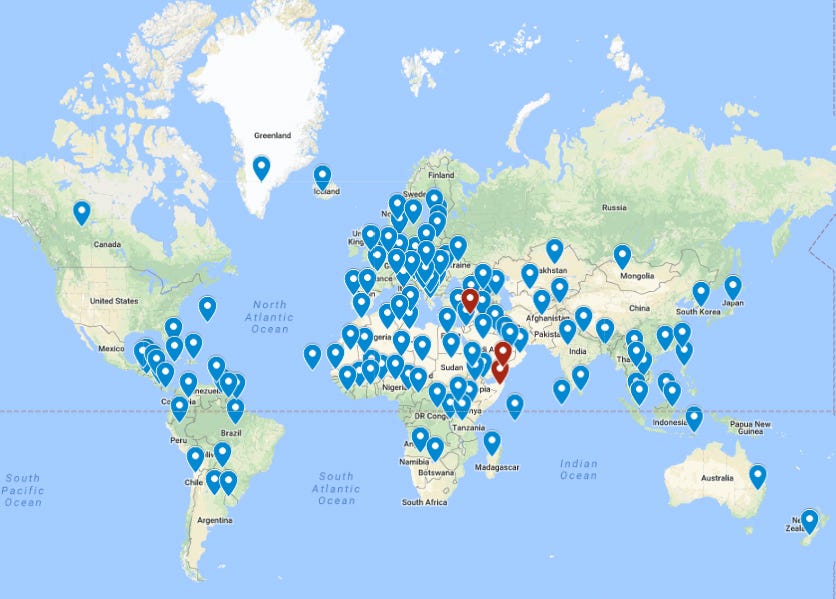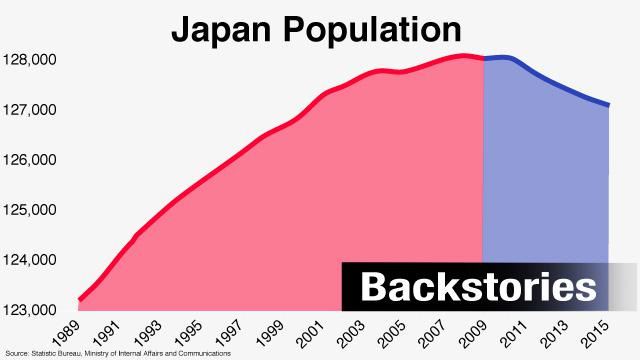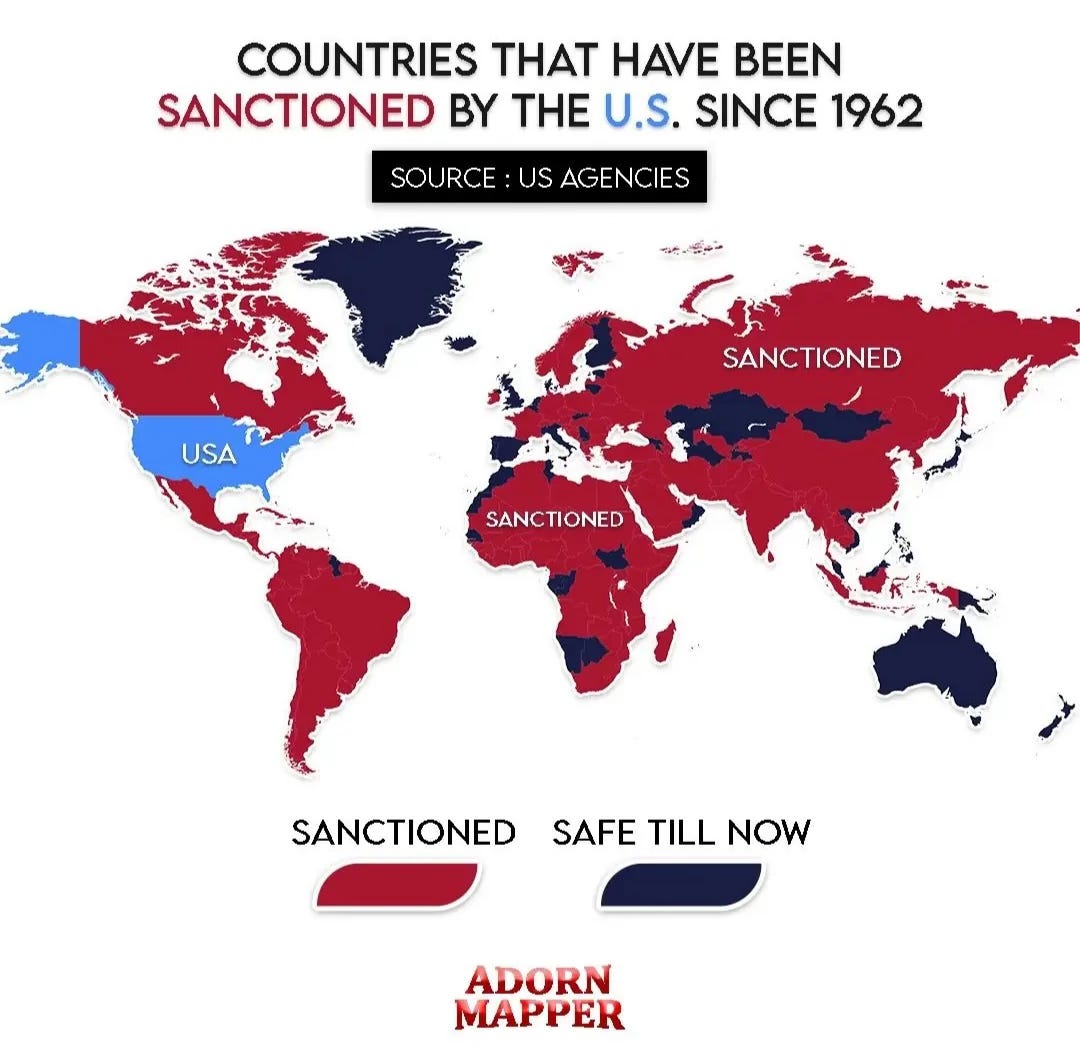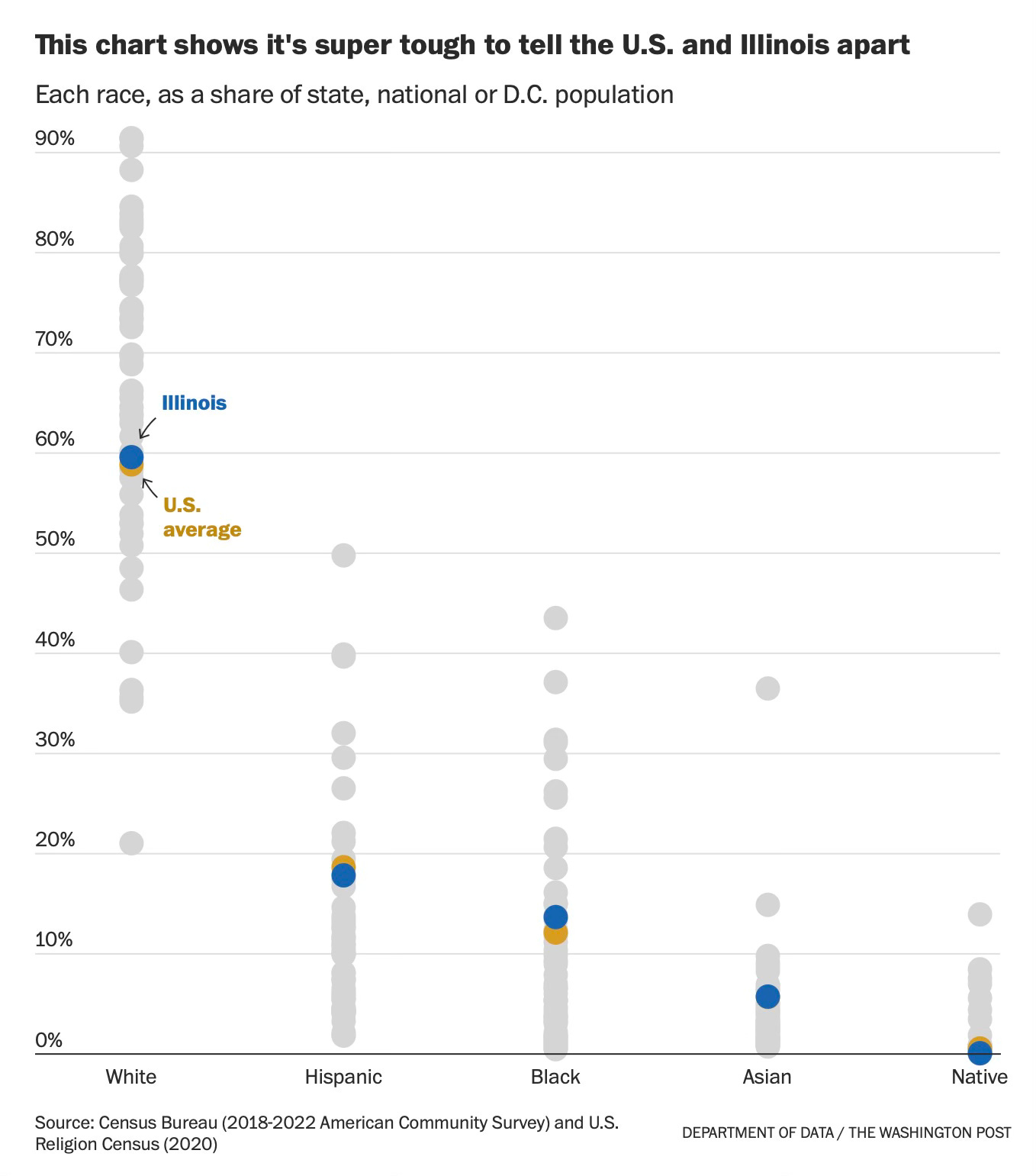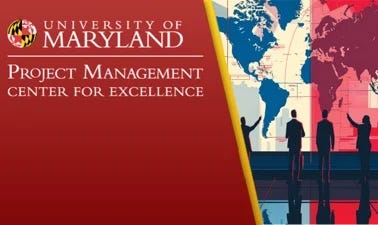NOTE: I am on vacation this week so I can’t respond to any comms until 3 June.
1) Less soldiers, more investors — please!
WAPO: U.S. threats led to rupture of vital military ties, Nigerien leader says
Back in 2007 I wrote a piece for Esquire called “The Americans Have Landed” based on a short-term embed with US forces out of Djibouti. In it, I predicted America would soon have two dozen little “forts” around the continent. At the time, the Pentagon called BS, but now …
It seems less crazy, yes?
Well, recently the new government in Niger (thanks to a military coup last year) made it clear they want the US military gone.
How this happened, per WAPO:
A crucial military relationship between the United States and its closest West African ally, the country of Niger, ruptured this spring after a visiting U.S. official made threats during last-ditch negotiations over whether American troops based there would be allowed to remain, according to the country’s prime minister.
In an exclusive interview, Prime Minister Ali Mahaman Lamine Zeine put the blame for the breakdown squarely on the United States, accusingAmerican officials of trying to dictate which countries Niger could partner with and failing to justify the U.S. troop presence, now scheduled to end in the coming months. Niger has been central to efforts to contain a growing Islamist insurgency in West Africa.
The rift between the former allies has created an opportunity for Russia, which has moved quickly to deepen its relationship with Niger, dispatching troops to the capital, Niamey, last month to train the Nigerien military and supplying a new air defense system. Russian and U.S. troops now occupy opposite ends of an air base.
Apparently, after the coup, the new Niger government wanted more military aid and fewer strings, while the US pushed for a return to democracy. The US official who pissed them off did so by insisting the new government eschew any security ties with Iran and Russia.
And yet, because extremist attacks are rising since the coup, the door is still somewhat open for continued military assistance, the caveat being we’re not the only game in town. When we froze our assistance following the coup, we basically encouraged the leadership to look elsewhere, as they themselves state. There is also our fear that Niger will sell uranium to Iran — a sore-wound accusation that recalls our flimsy intelligence in the run-up to the toppling of Saddam in Iraq two decades back (Niger remembers alright).
But here’s the bit that caught my eye:
Although Niger is insisting that the U.S. military leave, [Prime Minister Ali Mahaman Lamine] Zeine said that his government wants to continue economic and diplomatic relations with the United States and that “no Nigerien considers the United States as the enemy.” He said he told [senior US State Department senior officials] that Niger would rather have American investors than soldiers.
“If American investors arrived, we would give them what they wanted,” he recounted telling the States Department officials. “We have uranium. We have oil. We have lithium. Come, invest. It is all we want.”
I say this throughout America’s New Map: Global South states want security over defense. When we tell Niger, no Russians and no Iranians! We’re basically saying that our defense considerations outweigh their domestic security concerns. We’re giving them a big fat no when they want a straightforward yes.
As usual, we’re playing the players while our competitors are playing the board. Honestly, that mostly makes sense across Africa as our concerns there center on killing bad guys versus economic development.
We just have to recognize that this approach limits our appeal to the locals, generating a consistent source of pushback that allows others to intervene — in effect, achieving the very outcome we seek to avoid.
2) Scary to many, logical to some
ECONOMIC TIMES: China overtakes US to become India’s top trading partner in FY24
China, the risen Asian power, is the natural trade and investment source for rising India — all things being equal:
China has emerged as India's largest trading partner in the FY 2023-24 with $118.4 billion two-way commerce, narrowly edging past the US, according to the data of economic think tank GTRI. The bilateral trade between India and the US stood at $118.3 billion in 2023-24. Washington was the top trading partner of New Delhi during 2021-22 and 2022-23.
Of course, the US doesn’t want all things being equal among itself, India, and China, desiring that New Delhi join in Washington’s efforts to contain Beijing’s growing global influence.
Seriously though, the idea that India can successfully rise while eschewing Chinese foreign direct investment and trade and integration with China’s global value chains … that’s a mountain nobody in their right mind would like to climb.
So, Washington needs to get used to this growing bilateral economic interdependency. New Delhi is wary enough of, and sophisticated about, Chinese influence peddling to have their FDI/trade “cake” and eat it too.
3) Proof of Israel’s efforts to limit collateral death in Gaza?
USA TODAY: United Nations cuts estimates of women, children deaths in Gaza war in half
The UN, up to recently, seemed to be taking Hamas’ statistics on casualties at pretty close to face value. Those numbers suggested seriously significant percentages of women and kids getting killed collaterally, despite Israel’s best efforts to limit that outcome.
Now, the UN has drastically downgraded the numbers for both women and kids while maintaining the top-line casualty count is accurate (about 35k).
I don’t expect this revision will quell those critics who say Israel isn’t trying hard enough on collateral damage, but it is important for perspective.
As I have argued: Israel wants Hamas unable to operate out of Gaza because the territory is too demolished to remain livable for their Palestinian “shields” (effectively ending Gaza’s status as a state-within-a-state). However, seeking that does not equate to maximizing civilian casualties, which Israel has gone out of its way to avoid.
Again, you want to call it “genocide”? That’s just plain wrong.
You want to call it “ethnic cleansing?” That’s pretty much on target.
4) Bang for your buck
DEFENSE NEWS: Pentagon seeks to expand special ops authorities for friendly nations
Trickle-down effect of Russia-v-Ukraine:
The Defense Department wants Congress to approve an expansion of special operations authorities to train and equip U.S.-aligned countries for irregular warfare against outside aggressors.
The Pentagon submitted a legislative proposal to Congress in April that would expand the scope of these authorities – usually reserved for counterterrorism, counternarcotics and border security activities – to include “resistance operations” and “foreign internal defense operations.”
All that lingo is code for getting potential Ukraines ready for a Russian invasion. It also applies to Global South states vulnerable to the mischievous security activities of Russian private military companies like Wagner Group.
As the map above proves, the US is busy as a beaver when it comes to spec ops around the world. They are, as a rule, a very smart investment.
5) India moving up in the all-time ranks
DW: Japanese angst as India set to become 4th largest economy
This is what it’s like when you get very old very fast and shrink as a population:
The announcement that India will overtake Japan in nominal gross domestic product in dollar terms in 2025 has shocked Tokyo. Until 2010, Japan had been home to the world's undisputed second-largest economy, but it's now on the brink of slipping to fifth place.
Japan is looking at 8th place come 2050.
6) Obamacare allowed me to keep my left eye (wink, wink)
WAPO: Did Obamacare ‘massively’ increase the cost of health care?
The short answer is no, and here’s a more accurate story about its impact. Admittedly an anecdote, but remember that the plural of anecdote is data.
Back in 2015 I was let go by a start-up and suddenly found myself without any health insurance and needing to obtain it on my own for myself and my family.
We ran into all sorts of disqualifying situations and eventually resorted to Obamacare.
In the time that we were insurance-less, I started losing sight in my left eye. But I held off doing anything until we were covered. Once we were, thanks to Obamacare, I finally saw a doc who said my eye damage was too far gone to be recovered.
“Too bad,” he said, “you didn’t have somebody address this earlier.”
Still, he had a drug I could never afford without healthcare and we gave it a shot — right into my left eyeball.
To the doc’s amazement, it worked and reversed the vast majority of my vision loss over time
Back then I had to get shots every four weeks, now I am up to 12 weeks between shots.

Needless to say, I am very grateful that, during our time of need (me out of work, kids in college, wife in grad school), I wasn’t bankrupted by medical bills, as that is a trap so easy to fall into.
Didn’t need Obamacare for long, but without it, I don’t see out of my left eye today.
I think about that every time Obamacare is vilified by the GOP, despite its immense popularity across the nation.
7) I'm shocked! Shocked to find that espionage is going on in here.
FIRST POST: Eric, China's Edward Snowden, exposes dirty and dangerous works of Chinese global espionage under Xi Jinping
The Chinese spy and steal and cheat like crazy. All great powers, on their rise to the top, engaged in such behavior. As I note in America’s New Map:
The American System is all about gearing up your economy to compete on a global stage—not about how you behave once you have arrived there. In that all-important journey, the American System allows for a protectionist government role in economic development that first stitches together the national economy and then connects it to the outside world on decidedly favorable terms. This catch-up strategy will strike competitors as “cheating,” which it is. But for the global economy, it is far better to allow such short-term cheating because the result is a much bigger economic “pie” for all to divide.
America was considered the world’s most thieving and cheating economy of the 1800s, just like Japan, the Asian Tigers, and then China in the late– and post–Cold War eras. In globalization, everyone cheats their way to the top by not becoming a fair trader until they are strong enough to play on that highly competitive level. It is then—and only then—that the American System’s logic yields to that of the Washington Consensus, emphasizing the widest possible integration of a national economy to the global economy, along with legal protection of patents, brands, and intellectual property.
And yes, when I say “thieving and cheating,” I mean industrial espionage galore. And yes, America was the King Kong of such behavior across its long rise.
Does that mean we should put up with such behavior anymore with risen China? Hell no. Time for them to be treated like the rest of the adults in the superpower room.
Also time for China to get ripped off like every other advanced economy by the next set of cheating, thieving risers.
8) Fixing the EU? Make it more like the American Union?
FT: Can Europe’s economy ever hope to rival the US again?
You know who was the first major leader to prominently project such a future?
That would be Winston Churchill in 1946:
We must build a kind of United States of Europe. In this way only will hundreds of millions of toilers be able to regain the simple joys and hopes which make life worth living. The process is simple. All that is needed is the resolve of hundreds of millions of men and women to do right instead of wrong and to gain as their reward blessing instead of cursing.
Not exactly a blueprint for action, but you get the gist.
The EU now feels like it is falling behind the US in economic vigor, so they’re looking for answers from eminent leaders of the past:
The EU has asked Mario Draghi, Italy’s former prime minister and ex-head of the ECB, to come up with ways of boosting the bloc’s competitiveness. He is expected to recommend deeper integration of EU capital markets and greater centralised funding for defence and other areas from Brussels, warning recently that “without strategically designed and co-ordinated policy actions, it is logical that some of our industries will shut down capacity or relocate outside the EU”.
What a Hamiltonian answer, yes?
Another interesting difference comes in how we economically handled COVID:
US productivity was boosted by the temporary surge in unemployment after the pandemic hit in 2020, which reshuffled people into new and more productive roles once activity picked back up. Europe instead chose to protect jobs with massive furlough schemes. “We froze our labour market,” says Boata at Allianz, adding that this resulted in “zombified jobs”.
There are profound social difference between our Union and the EU, the old saw being Americans live to work and Europeans work to live.
Still, there are rulesets that enable and account for that difference, and so it will be interesting to see how much our two Unions converge and diverge this century.
9) Damn the photons! Full speed ahead!
SCMP: Chinese scientists find a way to mass-produce optical chips that the US cannot sanction
It’s almost down to a science …
Still, always bet on a workaround emerging, and thank God most of the time, because you don’t want to back anybody into a corner where war is the only imaginable response.
So, looks like China has found yet another workaround.
Researchers developed a technique that uses a low-cost material – lithium tantalate – that is already being used to make smartphone components. The technique could help the country get round a series of US curbs designed to restrict its access to advanced chip technology. The chips, or photonic integrated circuits (PIC), use photons – particles of light – to process and transmit information.
I know US sanctions are our go-to answer for everything and everyone. I just don’t think they work in our interconnected world.
10) Children of Men — inspired by a true story
WSJ: Suddenly There Aren’t Enough Babies. The Whole World Is Alarmed.
The jolting observation:
The world is at a startling demographic milestone. Sometime soon, the global fertility rate will drop below the point needed to keep population constant. It may have already happened.
Fertility is falling almost everywhere, for women across all levels of income, education and labor-force participation. The falling birthrates come with huge implications for the way people live, how economies grow and the standings of the world’s superpowers.
Hence my subtitle: “Restoring Our Global Leadership in an Era of Climate Change and Demographic Collapse.”
Still, you can’t get too wrapped around that one axle.
There is immigration South to North.
There is climate change that will force migration South to North.
There is a Technological Singularity out there, waiting to rejigger the whole purpose of human labor.
We’re on the cusp of a bio-tech revolution that will extend lifespans dramatically.
In short, it’s one dynamic that needs to be broadly framed by so many more.
So, don’t let this one fact get you down.
Think about all those other facts and be totally bewildered!
11) That you-know-what has left the you-know-where
SCMP: Contain China? Washington, that ship has sailed
Okay, I’m from Wisconsin, where the whole horse-barn thing makes more sense that ships sailing, but the notion is the same.
This is a well-written piece worth reading.
Some prominent voices in Washington have been arguing that the United States should adopt a cold-war-style approach to contain China. They frame the Biden administration’s policy of attempting to find a middle ground through detente as naive and believe that only a hardline approach, similar to former US president Ronald Reagan’s to the Soviet Union, will effectively counter Beijing.
But this presumption is based on a false premise. Today’s China bears little resemblance to the 1980s-era Soviet Union, which suffered from having a flawed governing ideology and an economic foundation that was completely inadequate.
Well before the Soviet Union fell apart, its state-run economy was largely isolated from the global economy, primarily dependent on extractive industries and already in the process of collapsing under the weight of its own contradictions. During the 1980s, the Soviet Union’s gross domestic product was always less than US$4 trillion. Foreign trade accounted for a mere 4 per cent of its gross national product in 1985.
By contrast, China is a highly diversified economic goliath with a blend of public and private sectors. Despite its current economic and financial challenges, China remains at the epicentre of global manufacturing and is growing by around 5 per cent per year. Nearly 90 per cent of its exports are derived from its vibrant private sector. China’s GDP is almost US$18 trillion. It accounts for 14 per cent of global trade and is the largest trading partner of more than 120 countries. It bears little resemblance to the former Soviet Union.
All true.
And here’s the part the Reaganites always get wrong:
The collapse of the Soviet Union had far more to do with its own inherent contradictions and the vicissitudes of the global economy than with any actions the United States took to hasten its demise.
Duh!
It gets better …
Like-minded pundits and politicians in Washington live in an alternative reality, believing that most the world would join the US in a containment strategy or war against China. They appear to have little knowledge of modern-day China, its global relationships, influence or military and diplomatic capabilities.
It’s hurts because it’s true.
These people seem to believe that we are still in the 1950s, when the US could simply snap its fingers and much of the world would follow its lead. That era is long gone.
It’s called MAGA! And you wouldn’t understand!
But we can always blame it on Nixon and the Panda Huggers!
Let us not forget that China is the US’ first proper peer competitor since the end of the Cold War. If containment was going to be implemented against China by the US, it should have been done 30 years ago, when China was comparatively weak and Washington’s alliances were comparatively strong.
The Chinese genie has been out of the bottle for too long to imagine that containment is even possible. The Communist Party knows that. How come the masters of the universe in Washington do not?
Brilliant little op-ed.
12) Perhaps the Simpsons’ Springfield really is in Illinois
WAPO: What state best represents America?
Ah, WAPO, isn’t Which state best represents America? And, please, feel free to return a Pulitzer (or two) as your punishment.
Turns out it’s Illinois.
Just FYI.
The article includes a number of ways of measuring the most average American state, and when they’re all added up and collated, Illinois still comes out on top.
This persona au gratin is dismayed in the extreme, but there you have it.








